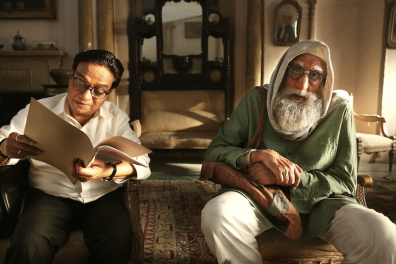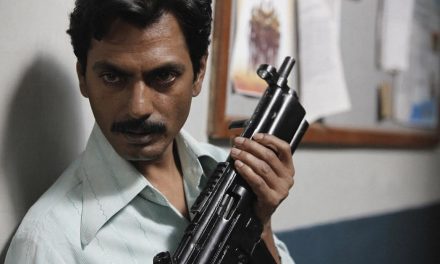The Hindi (India’s national language) movie industry, popularly christened as Bollywood, is one of the largest film-production centers in the world.
The first feature film produced in Indiawas the silent black-and-white film Raja Harisshchandra directed by Dadasahib Phalke and released in 1913
With time, the industry expanded and the number of films produced kept increasing throughout the 1920s and 1930s. With expansion, newer technologies were introduced including the use of sound and later, color.
Alam Ara was India’s first sound film, while Kisan Kanya wasIndia’s first color film. Both are directed by the same person). Introduction of these technologies significantly shaped the style of Indian film-making, as the advent of sound popularized musicals and song-and-dance sequences, making them an integral part of Indian films.
The industry did face problems during the 1930s because of independence movements and international wars The 1940s, 1950s and 1960s are often called the “golden years” of Bollywood. Films received much critical appreciation all over the world. Several notable cinematic figures such as Guru Dutt, Raj Kapoor and Bimal Roy were active during these years and were instrumental in developing the industry.
Subsequently, Bimal Roy’s Mother India received universal acclaim and became India’s first feature film to be nominated for the Academy Award for Best Foreign Language Film. Till today, it is one of only three Bollywood films – Salaam Bombay and Lagaan being the other two – to share that honor.
Other Bollywood films from the era were screened in major film festivals across the world, and some of them won major prizes as well. Parallel cinema also emerged during this time, and gained momentum later on after a “hibernation” phase.
Beginning with the 1940s, Bollywood films also saw major commercial success, and several box office milestones were reached. As the popularity of cinema spread, theatrical revenue kept increasing. The 1943 Gyan Mukherjee-directed Kismet became the first Bollywood film to cross the Rs. 1 crore (about $200,000) mark.
Subsequently, more films surpassed that mark until Shree 420 crossed Rs. 2 crore (bout $400,000) mark for the first time. Beginning with the 1960s and particularly 1970s, Bollywood films achieved major commercial success more regularly, and the revenue earned multiplied many fold throughout this period, a trend that continued into the 1990s.
Sholay in 1975 earned triple the amount that the previous record-holder Mughal-e-Azam (1960) had earned, while Hum Aap Hain Koun. (1994) more than quadrupled Sholay’s record. Post the “dark phase” of the 1980s, business increased tremendously as is visible from the major success of films like Hum Aapke Hain Koun, Dilwale Dulhaniya Le Jayenge and Gadar: Ek Prem Katha.
Initially, the success of a film was determined by box office longevity than revenue. However, due to increasing competition from television and the threat of piracy, and later the advent of alternative media, longevity of films decreased drastically and revenue became the focus of success.
The revenue-earning pattern has become increasingly front-loaded over the years, and now most films depend only on first weekend or first week revenue to decide the fate of a film, a trend that has received widespread criticism from industry experts. This trend was further intensified after the multiplex boom inIndiafollowing liberalization, which caused ticket prices and theatrical screening scope to increase.
Since 2008 Bollywood films have started breaching the Rs. 100 crore ($20 million) mark consistently. Ghajini was the first Bollywood film to cross that revenue mark. Considered a turning point in Bollywood, multiple films have gone past the $20 million mark since then.
Beginning with the 2000s and particularly in the 2010s, the release size and marketing efforts have increased rapidly to the extent that films can achieve the$20 million mark in a single week, and the single-day full-capacity revenue can be $6 million.
Franchises have witnessed increasing popularity and several highly popular franchises such as Dhoom and Golmaal great success at the box office; additionally, each sequel has earned more than the previous film, making franchises a lucrative business proposal.
Below is a set of lists which track the records for highest-grossing films inIndia(by net figures, i.e. after tax reduction), highest opening days, highest opening weeks and also other specific lists.
Since box office figures inIndiaare not tracked strictly, figures from Box OfficeIndiaare utilized. Only extracts are visible here for some of the lists due to copyright concerns.. The original list showed the Top 30 films according to net revenue earned inIndia.
Highest-grossing Bollywood films inIndia
Rajkumar Hirani (shown here) is the director of Bollywood’s highest-grossing film so far, which is 3 Idiots. The film had revenues of over $75 million (see list below).
The following is a non-definitive list of the all-time highest-grossing Bollywood films, by nominal value. Since this list is not adjusted for inflation it tends to favor films in more recent years, with all but two of the films in the top 30 being released after 2000. Films released prior to 1994 do not appear in the list because inflation, population size and ticket purchasing trends make direct comparisons inaccurate. Figures are given in Indian rupees.
The current exchange rate currently is approximately US $1.00 = Rupees 50.00
|
Highest-grossing Bollywood films in India (extract) |
|||||
|
Rank |
Movie |
Year |
Studio(s) |
Net Gross |
Director |
| 1 | 3 Idiots | 2009 | Vinod Chopra Productions | 202,57,00,000 | Rajkumar Hirani |
| 3 | Dabangg | 2010 | Arbaaz Khan Productions | 140,10,00,000 | Abhinav Kashyap |
| 6 | Ra.One | 2011 | Red Chillies Entertainment | 114,78,00,000 | Anubhav Sinha |
| 10 | Singham | 2011 | Reliance Entertainment | 97,87,00,000 | Rohit Shetty |
Highest-grossing Bollywood films worldwide
Films starring Shahrukh have appeared on this list the maximum number of times
The biggest Worldwide grossers in the history of Hindi film industry are listed below. One film has crossed Rs. 300 crore (about 50 million). Six films have hit the $40 million mark while 37 films have hit the $20 million mark. All numbers are worldwide gross figures.
|
Highest-grossing Bollywood films worldwide (extract) |
|||||
|
Rank |
Movie |
Year |
Studio(s) |
Net Gross |
Director |
| 1 | 3 Idiots | 2009 | Vinod Chopra Productions | 385 crore (US$76.81 million) | Rajkumar Hirani |
| 3 | Dabangg | 2010 | Arbaaz Khan Productions | 215 crore (US$42.89 million) | Abhinav Kashyap |
| 6 | My Name Is Khan | 2010 | Fox Star Studios | 200 crore (US$39.9 million) | Karan Johar |
| 10 | Rab Ne Bana Di Jodi | 2008 | Yash Raj Films | 158 crore (US$31.52 million) | Aditya Chopra |
Source: Wikipedia






